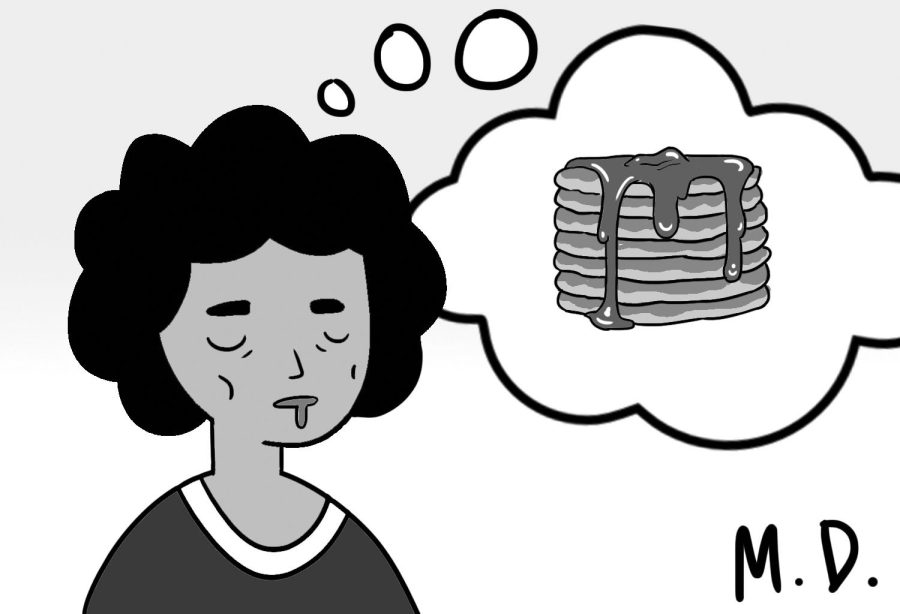Many students have had the experience of being hungry in class. Your back arched forward, hands curled around your waist, mind focused on the fierce growls escaping your pleading stomach and the twists and turns interrupting your thoughts. It’s extremely distracting, and makes it practically impossible to focus in class.
Imagine going through this discomfort every day, not only during lessons, but during tests and presentations as well. For students who qualify for free or reduced-price meals and rely on Paly for their breakfast, this is their reality.
Breakfast at Paly is not served until Brunch, which means students who qualify for free or reduced-price meals cannot receive food until after the first period of the day. These students must take assessments on an empty stomach, yet they are still compared to those who have the privilege of coming to school well-fed. This leaves low-income students at a significant disadvantage.
The 164 students who receive free meals and the 49 students who receive reduced-price meals obtained this eligibility through an application process. The family applying for eligibility can easily find the application form on the Meal Plan page of Palo Alto Unified School District (PAUSD)’s website, and will receive notice of the outcome of the request promptly.
“By law, eligibility determination must be made, the family notified of the status and the meals started within ten days of our receipt of the application.”
Alva Spence, PAUSD’s Nutrition Services Director
Student from low-income households as well as students who are homeless, migrant, runaway or participants in the school’s Head Start program are all eligible for free meals. The process for determining eligibility is expeditious and straightforward. However, it is after eligibility is determined that problems begin to arise.
The major problem is that students who rely on Paly for breakfast aren’t able to eat until after their first class. However, this hasn’t always been the case.
“We have offered the early morning breakfast in the past and have had a number of issues,” Spence said in an email. “Students would take the early morning breakfast, brunch and lunch, but the Food Service Department could only claim two of the three meals eaten, creating a financial hardship on the Food Service Program. [Secondly], very few students would come to the early morning breakfast, creating a financial hardship on the Food Service Program because of the labor allocated to run the early morning breakfast.”
One potential problem with providing breakfast before school is some students who qualify for the free meals take the bus to school and might not be able to get to campus early enough, which may have been one cause of the low turnout for the early morning breakfast program when it ran before.
This does not excuse the school from its responsibility of providing students with breakfast before school as an option. Students should have the chance to work around other obstacles preventing eating before class instead of having the school be another obstacle.
According to Spence, without the early-morning breakfast program, students’ only options to get food before school are Town and Country or the vending machines around campus.
However, these options both come at a cost, and students who are dependent on the school for meals cannot replace the breakfast they currently receive for free with these pricey options.
These issues stem from the fact that the Food Service Department is a cost neutral program, and early-morning breakfast was costing the department too much.
“The Food Service Department … is designed to be a self-supporting fund within the general fund of the district and not allowed to encroach on the general fund.”
Alva Spence
Ultimately, funding is the major issue impeding the success of the early-morning breakfast program. It is ironic that a school that recently spent $15.8 million on a new gym (not including a tremendous donation) and built a $27 million Performing Arts Center and $36.8 million Media Arts Center cannot find the funding to ensure that all its students are fed before class and can participate in the classroom attentively and effectively.
Food is a basic human necessity. It is imperative that the school ensures that all students have this necessity taken care of before attending classes. Without proper attention to the difficulties of studying on an empty stomach, students who cannot afford breakfast have a significant disadvantage, which is simply unacceptable.



